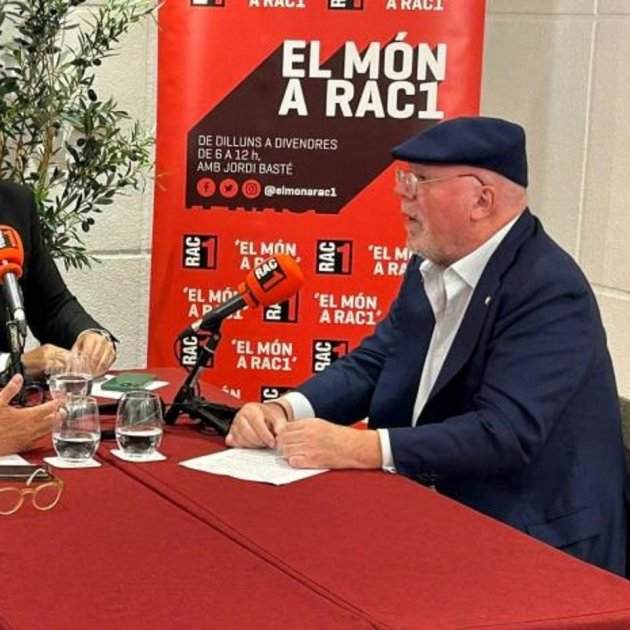The former Spanish police commissioner, José Manuel Villarejo, has revealed that the state's National Intelligence Centre (CNI) proposed sending tanks into Catalonia after the historic pro-independence rally on the Diada, or Catalan National Day, of September 11th, 2012. Villarejo, ex-police leader who had a hand in many of the Spanish state's illegal operations in this period, gave this information in a interview with radio programme El món on Rac1 this Monday, asserting that military intervention was considered just after the first massive Diada march of the 21st century movement, as a result of which the Catalan president at the time, Artur Mas, had decided to call early elections and to propose a referendum on Catalonia's independence from Spain.
Faced with this scenario, Villarejo revealed on the radio show that there were "several crisis meetings" where this option was considered. "The CNI officials who went to the meetings were in favour of positioning combat tanks in strategic places, such as television stations. At that point, I allowed myself to comment to them: "Why don't you opt for police vans? They consume less fuel, cost less and, moreover, and you know because you have been allowing it for 30 years, there is corruption in the government of Catalonia that will allow you to take judicial and police action", explained Villarejo in a face-to-face in the radio studio with president Mas. Given the scenario that he described, Villarejo proposed, instead of military intervention, that judicial actions be taken in the context of the fight against corruption, a proposal which led to the creation of Operation Catalonia, the fraudulent state campaign against Catalan politicians and interests conducted over the following years.
"The CNI knew where the ballot boxes were"
Regarding the referendum of October 1st, 2017, Villarejo affirmed that "the CNI certainly knew where the ballot boxes were, but they preferred for the referendum to be held normally." They believed that it was good for a scene to be made, because the issue was not going anywhere. The CNI knew that at all times, I'm sure... Because, even though I was already retired, I continued to collaborate with the secret services, as I also did in the years when I was on leave. I reported certain information, about where [the ballot boxes] could be, and they ignored me," said Villarejo, who asserted that the Spanish government intended that October 1st would be a "controlled explosion".
In fact, he even acknowledged that he had offered ideas aimed at preventing the vote from going ahead; for example, placing police officers at school entrances two or three days before the vote to prevent the buildings from being occupied. Likewise, he emphasized that the person who gave instructions to bring police forces to Catalonia was the Deputy Director of Operations (DAO) of the Spanish police, Tino Vallbona. "Villabona had been general commissioner of public security. He was someone who was very prone to repress demonstrations, was strongly right-wing, and felt like a Caudillo," explained the ex-commissioner, who gave the example of how Villabona gave a Mussolini salute on Barcelona's Via Laietana in a pro-Spanish demonstration.
The objective of Operation Catalonia? "Weaken CIU"
Villarejo also affirmed that one of the main targets of Operation Catalonia was Convergència i Unió, the major centre-right Catalan nationalist party. "It was the only party with sufficient capacity, structure and power to give the state any headaches", said the former commissioner of the Spanish police. Likewise, Artur Mas, also present with Villarejo on the radio programme, was able to take the ex-commissioner to task on these issues. Mas was one of the major victims of Operation Catalonia: on November 16th, 2012, just a few days before the elections to the Parliament of Catalonia, the newspaper El Mundo published a story asserting that the Catalan president as well as the Pujol family had massive bank accounts in Switzerland. Over this, president Mas asked Villarejo for an explanation, and the former police leader replied that the Mas government was preparing to launch a Catalan CNI, that is, Catalonia's own espionage agency. "You entrusted it to Mr Xavier Martorell," explained Villarejo, referring to the Generalitat's general director of public information at the time.
Villarejo accuses Pujol family, without evidence, of negotiation with the crown
One of the other elements that ex-commissioner Villarejo dealt with in the radio interview was the relationship between the family of long-time Catalan president Jordi Pujol and the Spanish crown. In fact, without evidence, he accused the family of having offered the CNI leaks from the Catalan Republican Left (ERC). Villarejo, who was sentenced to 19 years in prison for the crimes of revealing secrets and forgery, asserted that there were conversations and offers from the Pujol Ferrussola family to prevent the CNI from leaking new information about them. "The director of the CNI replied (to Josep Pujol Ferrussola) that he should give them information about who in the independence movement supported using more radical methods (in return for which the spy agency would not leak further material of the Pujols). He answered: ERC. And I told him yes, give me information on this," Villarejo said, without providing any proof.
